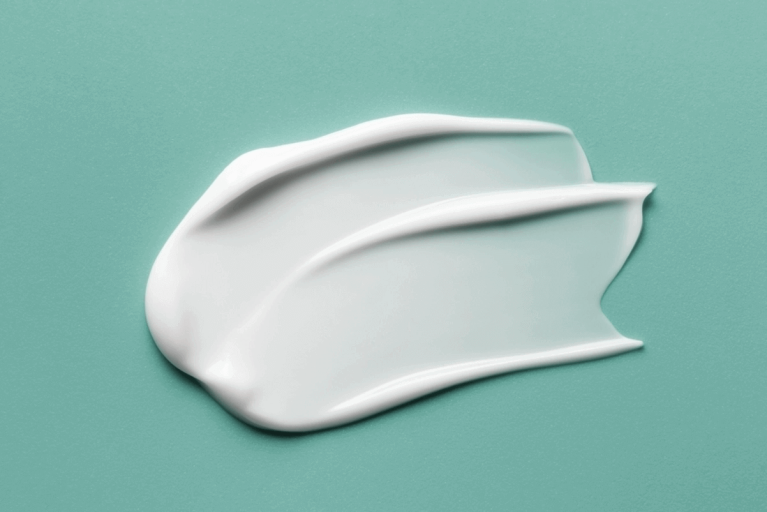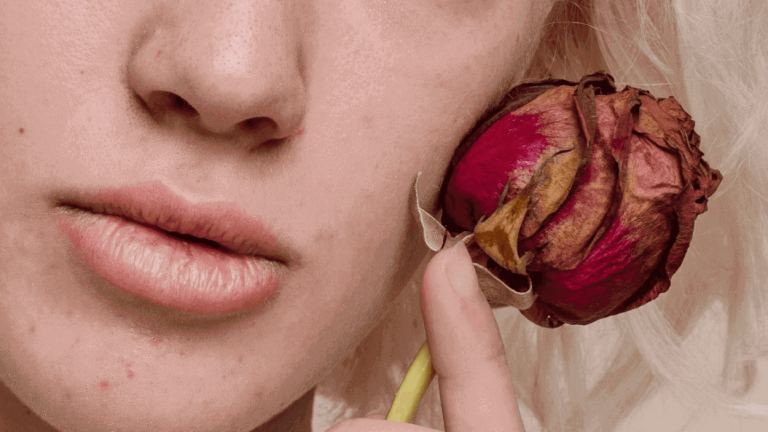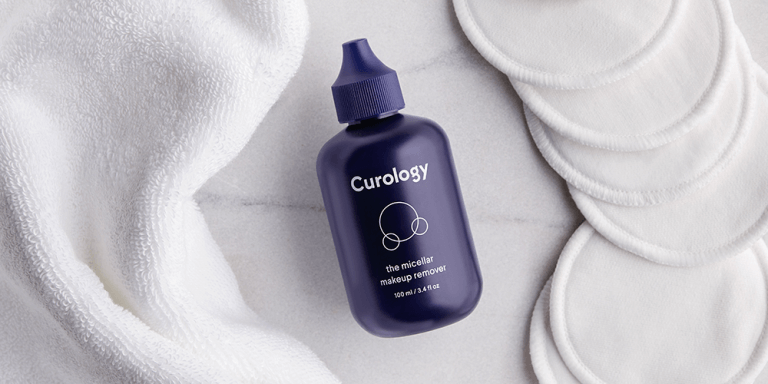How it works:
Share your skin goals and snap selfies
Your dermatology provider prescribes your formula
Apply nightly for happy, healthy skin
How it works:
How it works:
Share your skin goals and snap selfies
Your dermatology provider prescribes your formula
Apply nightly for happy, healthy skin
How it works:
How to find the right makeup remover for sensitive skin
Have sensitive skin? Try one of these gentle makeup removers.



More than half of people worldwide have some degree of sensitive skin — skin that reacts negatively to many topical ingredients.¹ If this sounds like you, you have every right to be extra picky about the products you put on your face. While using makeup that doesn’t irritate your skin is important, investing in a gentle makeup remover is equally crucial.
Some cleansers are good at getting rid of heavy makeup, but they can also be harsh on your skin, irritating it and stripping it of moisture. Makeup removers designed for sensitive skin give a bit of extra TLC, helping to remove makeup without taking away its natural, protective oils.
Let’s explore some of the best types of makeup removers for sensitive skin and what ingredients to look for (and which ones to consider avoiding) when buying one.
What to look for in a gentle makeup remover for sensitive skin
If you have a sensitive complexion, shopping for a good makeup remover that helps maintain your skin’s natural balance can be challenging. Here are a few key factors to keep in mind when you’re searching for a gentle cleanser:
Opt for non-abrasive products
Some makeup removers contain harsh ingredients, like denatured alcohol (aka alcohol denat). This can aggravate sensitive skin. Opt instead for a gentler, alcohol-free product (like Curology’s Micellar Makeup Remover).

Look for hydrating ingredients
Look out for products with moisturizing ingredients like ceramides, glycerin, hyaluronic acid, or aloe vera. Ceramides are lipids (fats) found in skin cells that help retain moisture.²
The addition of glycerin or hyaluronic acid to cleansing products provides benefits like calming redness and irritation while hydrating the skin.³ Aloe vera is also a great choice for people with dry, sensitive skin due to its moisturizing and anti-inflammatory properties.⁴
Pay attention to the order of ingredients
Skincare products often have a lengthy list of ingredients, so researching each one to determine whether it’s a match for your skin type isn’t exactly practical. Luckily, there’s an easier way to help figure out if a product is a good fit for your sensitive skin.
Ingredients are listed in descending order of concentration, meaning the first few will make up the bulk of what’s in makeup remover. Look for sensitive skin-friendly ingredients, like glycerin, closer to the beginning of the list rather than at the end. Similarly, if a potentially irritating ingredient is listed among the first five, you may want to avoid the product.
Ingredients to avoid if you have sensitive skin
Certain skin irritants are common in makeup removers on the market today. These harsh ingredients can be particularly triggering for sensitive skin, so it can be helpful to steer clear of makeup removers that use them.
Fragrance
While many people love a good scent, your skin may not share that love. Those with delicate skin, acne-prone skin, or certain skin conditions like eczema should try to avoid makeup removers that contain synthetic fragrances, as there are many fragrances that can cause irritation in some people.⁵

Alcohol
Many makeup removers on the market contain alcohol because it helps penetrate the skin barrier and dissolve makeup more easily.⁶ Makeup remover wipes often contain alcohol that can damage the skin’s protective barrier. A disrupted skin barrier can leave your face irritated, flaky, and dry.
Some of the most harmful types of alcohol for the skin are denatured alcohol (also known as alcohol denat) and isopropyl alcohol. Denatured alcohol can increase the risk of dryness and irritation. If you have sensitive or dry skin, eczema, or rosacea, opt for alcohol-free makeup removers.
It’s worth noting that not all alcohols are made equal. “Fatty” alcohols, like cetyl, stearyl, and cetearyl alcohol, are generally non-irritating alcohols that can help skin retain its moisture.⁷ These “unproblematic” types of alcohol are generally safe to use for all skin types.
Sodium lauryl sulfate (SLS)
SLS is a chemical surfactant that may be found in makeup removers and makeup wipes. Surfactants help cleansing products attach to dirt and oil more easily, making makeup removal more effective.
However, SLS is a known irritant for sensitive skin, potentially weakening the skin’s protective barrier⁸ and throwing off its pH.⁹
What are some of the best makeup removers for sensitive skin?
Enough about the bad ingredients! Let’s talk about the makeup removers that are kind to your delicate complexion.
Micellar water
Micellar water is the all-in-one cleanser, makeup remover, and moisturizer superstar of the skincare world. It’s ideal for sensitive skin due to its low irritation potential¹⁰ and ability to increase skin hydration and help preserve the skin’s natural barrier.

Micellar water contains tiny micelles, which are molecules that bind to oil and dissolve makeup, dirt, and debris. Micellar water’s gentle formula also makes it a great eye makeup remover for sensitive skin.
Curology’s micellar makeup remover is designed especially for people with sensitive or acne-prone skin. Our silky, fragrance-free, dermatologist-designed cleanser is suitable for all skin types. It gently removes even the most stubborn, waterproof makeup, dirt, and oil, leaving your skin fresh, soft, and moisturized.
Oil cleansers
Cleansing oils are a great match for sensitive or dry skin types. They gently and thoroughly break down the products on your face without tending to irritate the skin.
Cleansing oils can be applied gently; there is no need for harsh scrubbing. Rubbing your skin during makeup removal can worsen skin conditions like atopic dermatitis.¹¹
Take care of your sensitive skin with Curology
Makeup removers for sensitive skin get rid of stubborn makeup without irritating your skin, leaving your face refreshed, balanced, and nourished.
Get your personalized skincare routine with Curology
Get your personalized skincare routine with Curology


If you’d like some help finding the right gentle makeup remover for your skin, why not reach out to an expert? Curology’s in-house licensed dermatology providers can help you build a comprehensive skincare routine featuring a custom prescription skincare treatment tailored to treat sensitive skin.
Sign up for a trial* of Curology to try our micellar makeup remover and gentle facial cleanser designed for all skin types (including sensitive skin).
FAQs
Makeup removers are designed to dissolve beauty products such as foundation, mascara, blush, and other cosmetics from your skin’s surface. They come in various forms, including makeup wipes, cleansing foams, micellar water, and oil cleansers.
While not all cleansers are designed to remove makeup, many cleansers, like cleansing oils and balms, are very effective at removing makeup. They can also be used in tandem with traditional makeup removers to give your face a thorough clean.
Skincare companies use the “hypoallergenic” label to indicate that a product, such as a makeup remover, is less likely to cause an allergic reaction and is gentler on sensitive skin. However, according to the FDA, the term “hypoallergenic” has very little meaning because there are no federal standards or regulations that govern its use.10
In other words, “hypoallergenic” can mean whatever a cosmetic company wants it to mean. As such, makeup removers with this label can still potentially irritate sensitive skin.
P.S. We did the homework so you don’t have to:
Farage, M. (2019). The prevalence of sensitive skin. Frontiers in Medicine, 6, 98.
Coderch, L., Lopez, O., Maza, A., Parra, J. (2003). Ceramides and skin function.
American Journal of Clinical Dermatology , 4 (2), 107-29. https://pubmed.ncbi.nlm.nih.gov/12553851/
Walters, R. M., Mao, G., Gunn, E. T., & Hornby, S. (2012). Cleansing formulations that respect skin barrier integrity. Dermatology Research and Practice, 495917.
Surjushe, A., Vasani, R., & Saple, D. G. (2008). Aloe vera: A short review. Indian Journal of Dermatology, 53 (4), 163–166.
Kumar, M., Devi, A., Sharma, M., Kaur, P., & Mandal, U. K. (2020). Review on perfume and present status of its associated allergens. Journal of Cosmetic Dermatology, 20 (2), 391–399.
Lachenmeier, D. W. (2008). Safety evaluation of topical applications of ethanol on the skin and inside the oral cavity. Journal of Occupational Medicine and Toxicology, 3 (26).
Mary Ann Liebert, Inc. (1988). Final report on the safety assessment of cetearyl alcohol, cetyl alcohol, isostearyl alcohol, myristyl alcohol, and behenyl alcohol. Journal of the American College of Toxicology, 7 (3).
https://journals.sagepub.com/doi/pdf/10.3109/10915818809023137
DaSilva, S. C., Sahu, R. P., Konger, R. L., Perkins, S. M., Kaplan, M. H., & Travers, J. B. (2012). Increased skin barrier disruption by sodium lauryl sulfate in mice expressing a constitutively active STAT6 in T cells. Archives of Dermatological Research, 304 (1), 65–71.
Heetfeld, A.B.,Schill, T., Schroder, S.S., Forkel, S., Mahler, V., Pfutzner, W., Schon, M.P., Geier, J., Buhl, T. (2019). Challenging a paradigm: skin sensitivity to sodium lauryl sulfate is independent of atopic diathesis. British Journal of Dermatology.
Day, K., Tazzioli, J, Liu, M., & Hawkins, S. (2017). Sensitive skin compatibility of micellar water. Journal of the American Academy of Dermatology, 76 (6).
Hosokawa, K., Taima, H., Kikuchi, M., Tsuda, B. S., Numano, K., & Takagi, Y. (2020). Rubbing the skin when removing makeup cosmetics is a major factor that worsens skin conditions in atopic dermatitis patients. Journal of Cosmetic Dermatology, 20 (6), 1915–1992.
U.S. Food & Drug Administration. (n.d.). Cosmetics safety Q&A: “Hypoallergenic.”
https://www.fda.gov/cosmetics/resources-consumers-cosmetics/cosmetics-safety-qa-hypoallergenic
Melissa Hunter is a board certified family nurse practitioner at Curology. She received her MSN from George Washington University in Washington, DC. * Subject to consultation. Subscription is required. Results may vary.

Curology Team

Melissa Hunter, NP-C